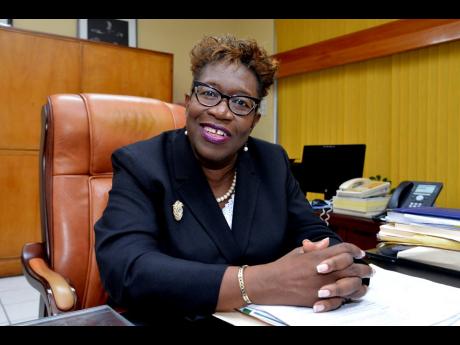Llewellyn’s tenure to be extended by three years
Prime Minister Andrew Holness has recommended to Governor General Sir Patrick Allen that Director of Public Prosecutions (DPP) Paula Llewellyn retain her post for another three years despite objection from Opposition Leader Dr Peter Phillips, who alleges that she has a “poor track record” on corruption prosecution.
Section 96 of the Constitution says that a DPP’s tenure ends on reaching the age of 60. Llewellyn will be 60 in September.
Holness said that he has been reviewing the arguments raised by the leader of the Opposition, but he is satisfied with Llewellyn’s performance.
“After consultation, and with deliberations as well, internally and with the governor general, we decided to extend her term of service for another three years,” Holness said yesterday.
“I think that generally, most persons would agree that the current DPP has done a fairly good job in building out the Office of the DPP, and I think that it is not just in the execution of her role, but certainly in terms of strengthening the institution itself,” he added.
Llewellyn is the first woman to hold the post of DPP and has served across four political administrations.
In a May 21 submission to Sir Patrick, a copy of which was obtained by The Gleaner, Phillips objected to the proposed extension based on a range of issues, including what he termed “many deficiencies” in the conduct of the Office of the DPP during Llewellyn’s 12-year tenure.
“Jamaica’s reputation as a jurisdiction rife with corruption has grown in this period, and it is troubling that in such an environment, the Office of the DPP, from all objective accounts, has a poor track record in the prosecution of corruption cases,” he said.
NOT ‘MODERN THINKING’
Phillips argued that extending the DPP’s tenure does not reflect “modern thinking”, which favours a seven-year tenure for appointment of public officials.
“This thinking always facilitates differentiation between the tenure of the Office of the DPP and the five-year maximum term of any political administration without making it so long as to create a diminished sense of accountability on the part of the office holder,” he said.
But Holness asserted that this argument undermines the Constitution and the authority of the office.
“I found that to be an unfortunate statement, which was raised in the public domain,” Holness said.
He said that Llewellyn has done “an excellent job.”

